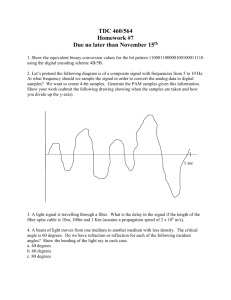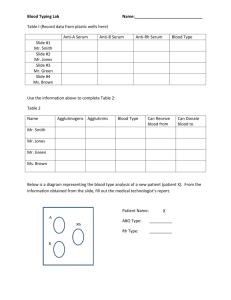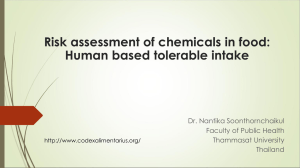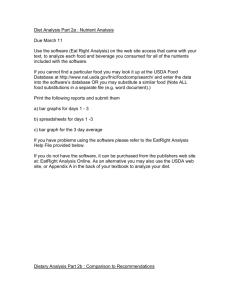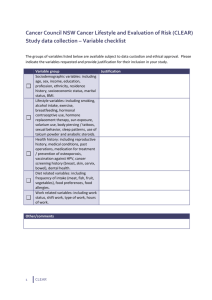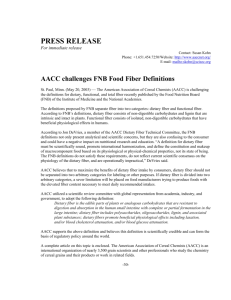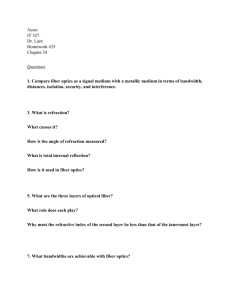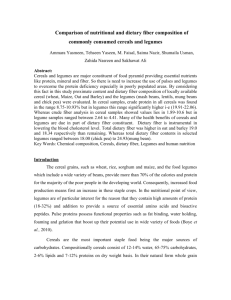Dietary fiber intake modulates the genetic effects on serum lipid
advertisement
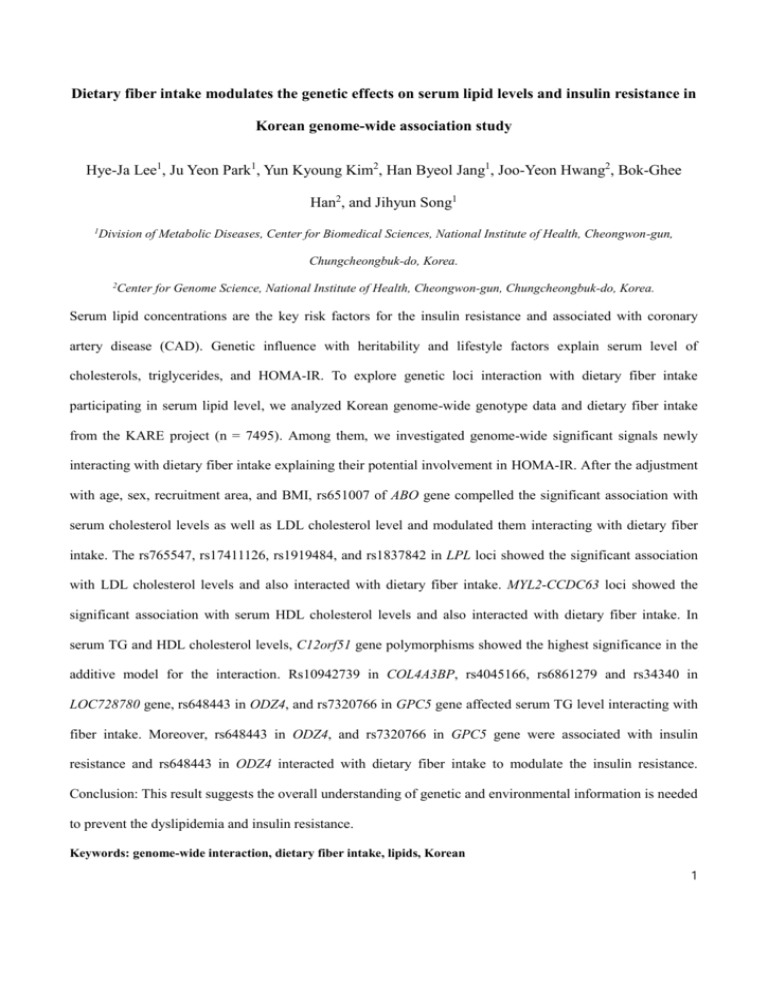
Dietary fiber intake modulates the genetic effects on serum lipid levels and insulin resistance in Korean genome-wide association study Hye-Ja Lee1, Ju Yeon Park1, Yun Kyoung Kim2, Han Byeol Jang1, Joo-Yeon Hwang2, Bok-Ghee Han2, and Jihyun Song1 1 Division of Metabolic Diseases, Center for Biomedical Sciences, National Institute of Health, Cheongwon-gun, Chungcheongbuk-do, Korea. 2 Center for Genome Science, National Institute of Health, Cheongwon-gun, Chungcheongbuk-do, Korea. Serum lipid concentrations are the key risk factors for the insulin resistance and associated with coronary artery disease (CAD). Genetic influence with heritability and lifestyle factors explain serum level of cholesterols, triglycerides, and HOMA-IR. To explore genetic loci interaction with dietary fiber intake participating in serum lipid level, we analyzed Korean genome-wide genotype data and dietary fiber intake from the KARE project (n = 7495). Among them, we investigated genome-wide significant signals newly interacting with dietary fiber intake explaining their potential involvement in HOMA-IR. After the adjustment with age, sex, recruitment area, and BMI, rs651007 of ABO gene compelled the significant association with serum cholesterol levels as well as LDL cholesterol level and modulated them interacting with dietary fiber intake. The rs765547, rs17411126, rs1919484, and rs1837842 in LPL loci showed the significant association with LDL cholesterol levels and also interacted with dietary fiber intake. MYL2-CCDC63 loci showed the significant association with serum HDL cholesterol levels and also interacted with dietary fiber intake. In serum TG and HDL cholesterol levels, C12orf51 gene polymorphisms showed the highest significance in the additive model for the interaction. Rs10942739 in COL4A3BP, rs4045166, rs6861279 and rs34340 in LOC728780 gene, rs648443 in ODZ4, and rs7320766 in GPC5 gene affected serum TG level interacting with fiber intake. Moreover, rs648443 in ODZ4, and rs7320766 in GPC5 gene were associated with insulin resistance and rs648443 in ODZ4 interacted with dietary fiber intake to modulate the insulin resistance. Conclusion: This result suggests the overall understanding of genetic and environmental information is needed to prevent the dyslipidemia and insulin resistance. Keywords: genome-wide interaction, dietary fiber intake, lipids, Korean 1
